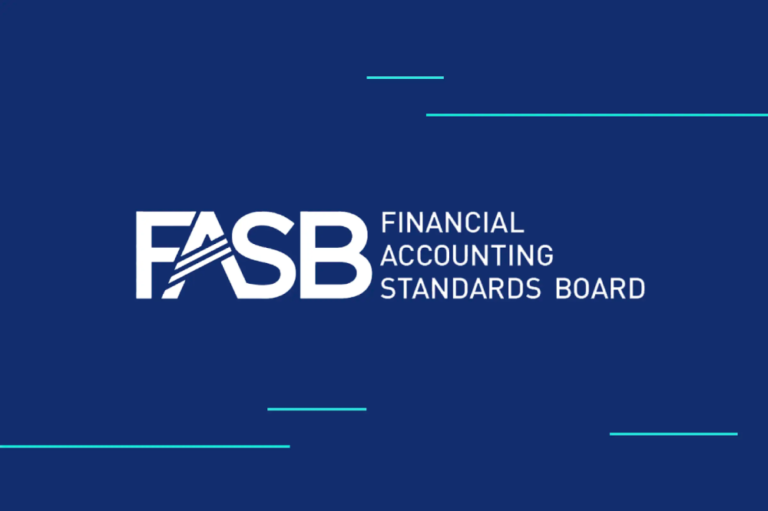The key regulator has determined that issuer and wrapped tokens are out of scope, in addition to clarifying transition guidance
On February 1st, the FASB (Financial Accounting Standards Board) held a public Board meeting to discuss and vote on scope adjustments, transition guidance, and the future issuance of an exposure draft. The decisions are part of the Board ’s ongoing project to provide tailored accounting guidance for cryptocurrency assets, which is a project that was added to the FASB’s technical agenda in May 2022.
As part of its public Board meeting, the FASB addressed the following key takeaways as it relates to accounting guidance for cryptocurrency assets:
- Issuer and wrapped tokens are determined to be out of scope, and the topic of public and private blockchains will not be addressed at this time.
- The staff votes on a modified retroactive financial reporting transition from the old to new cryptocurrency accounting guidance, with a cumulative effect adjustment being required as of the beginning of the current reporting period.
- The Board instructed the staff to begin drafting an exposure draft that will be made available for public comment.
Scope Adjustments to Accounting Guidance for Cryptocurrency Assets
The Board formally voted that creator or issuer tokens (along with tokens created or issued by a related party) are excluded from the scope of this project. In addition, the Board determined that wrapped tokens are also out of scope. Practically, this means that the proposed accounting adjustments to move to a fair value measurement model would not be applicable for these assets that are out of scope.
The scope of the project applies to cryptocurrency tokens with the exceptions noted above. It does not apply to NFTs, and stable coin treatment may vary (e.g. algorithmic stablecoins could be considered in-scope, while asset-backed tokens would not be considered within the scope). The scope of the project is outlined here.
Additional considerations for the tokens that are considered out of scope for the purpose of the updated cryptocurrency accounting guidance include:
- Issuer tokens have received increased attention in the wake of the FTX bankruptcy. This is because FTT, FTX’s own token, was at the center of the alleged fraud that was committed. For more information on the accounting issues involved with issuer or creator tokens such as FTT, check out our deep dive on The Fall of FTX and How Transparent Accounting Can Restore Crypto’s Future.
- Wrapped tokens will require a detailed review of whether or not the wrapped token represents a claim on another underlying asset. Under the proposed guidance, it’s possible that many wrapped tokens would be treated as receivables, requiring additional analysis.
In addition to scoping out issuer and wrapped tokens, the Board determined the topic of public distributed ledgers and private blockchains as it relates to accounting guidance for cryptocurrency assets will not be specifically addressed at this time.
The Board confirmed that these scope decisions are applicable to both public and private companies alike.
Application and Transition Guidance
The Board formally voted on a modified retroactive approach with respect to transition guidance, with a cumulative effect adjustment being required as of the beginning of the current reporting period. This effectively means that the new accounting standard would be applied in the current year’s financial statements, without a restatement of prior period reporting. This guidance will also be available for immediate adoption upon issuance. The staff recommends the same transition date for all entities, public and private.
There are two critical reporting changes an entity would need to consider in the transition period:
- Fair Value Measurement Treatment for Cryptocurrency Assets
- New Disclosure Requirements for Cryptocurrency
The Board analyzed the cost and benefit of the proposed cryptocurrency accounting guidance and determined that the updated accounting will provide stakeholders with better information for decision-making. The proposed fair value model will be a more accurate accounting reflection of the economic realities of the asset class. The accounting changes are intended to help with better decision-making and to establish consistent reporting presentation as it relates to cryptocurrency held by public and private companies.
Request for the Board to Ballot
In the months ahead, the Board will provide an exposure draft for the proposed accounting guidance for cryptocurrency assets. This exposure draft will be available for public comment and the Board decided on a 75-day comment period for the proposed adjustments. This keeps the Board on pace to issue a final Accounting Standards Update (ASU) before the end of the year. Stay tuned for future updates.
The Future of Crypto Accounting
At Taxbit, we are building pioneering solutions for digital asset accounting. Our technology is trusted by some of the world’s largest regulatory agencies, accounting firms, and crypto enterprises as we enable the following:
- Scalability to handle tens of millions of transactions
- A controlled environment to support robust control frameworks such as ISO 27001 or SOC 1 & 2 audits
- Support for GAAP-compliant journal entry and asset tracking
- Audit support that is built with your auditors in mind
- Transparency into transaction and accounting details
- Industry thought leaders with technical accounting expertise; former FASB/AICPA/Big4 employees working with national offices as your partners









